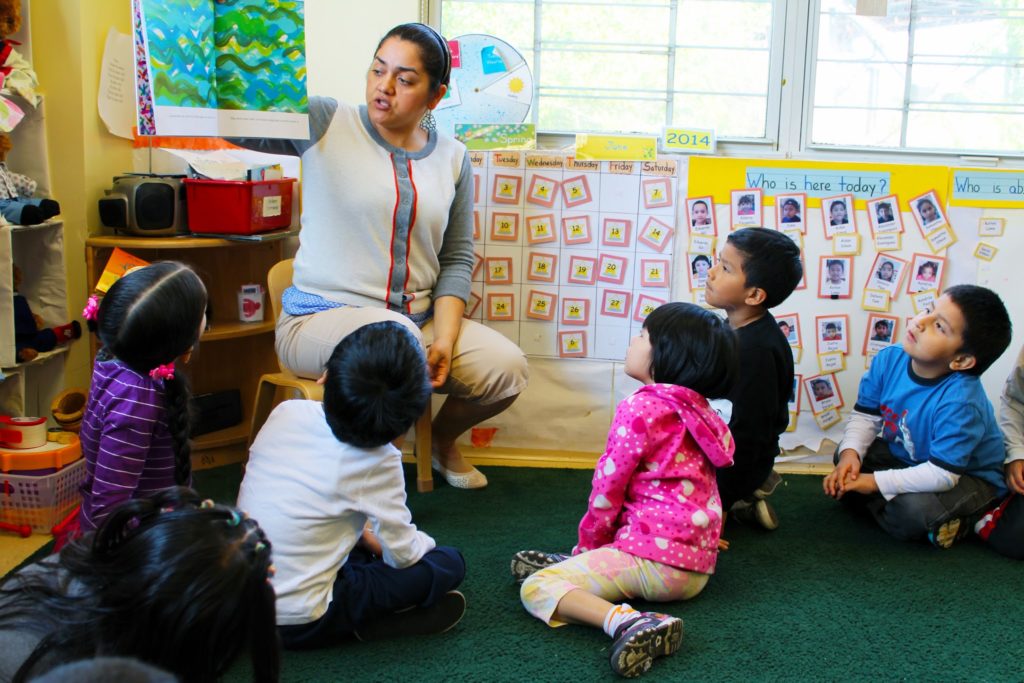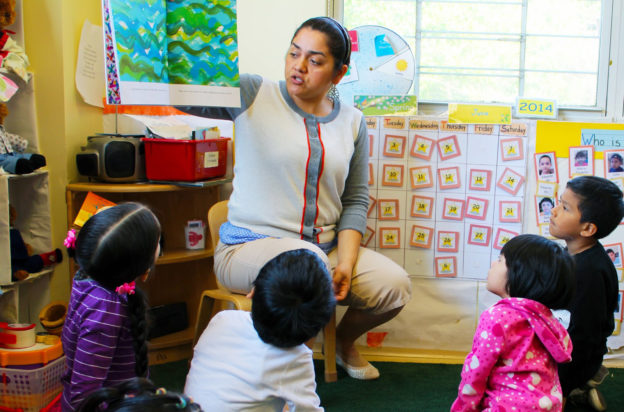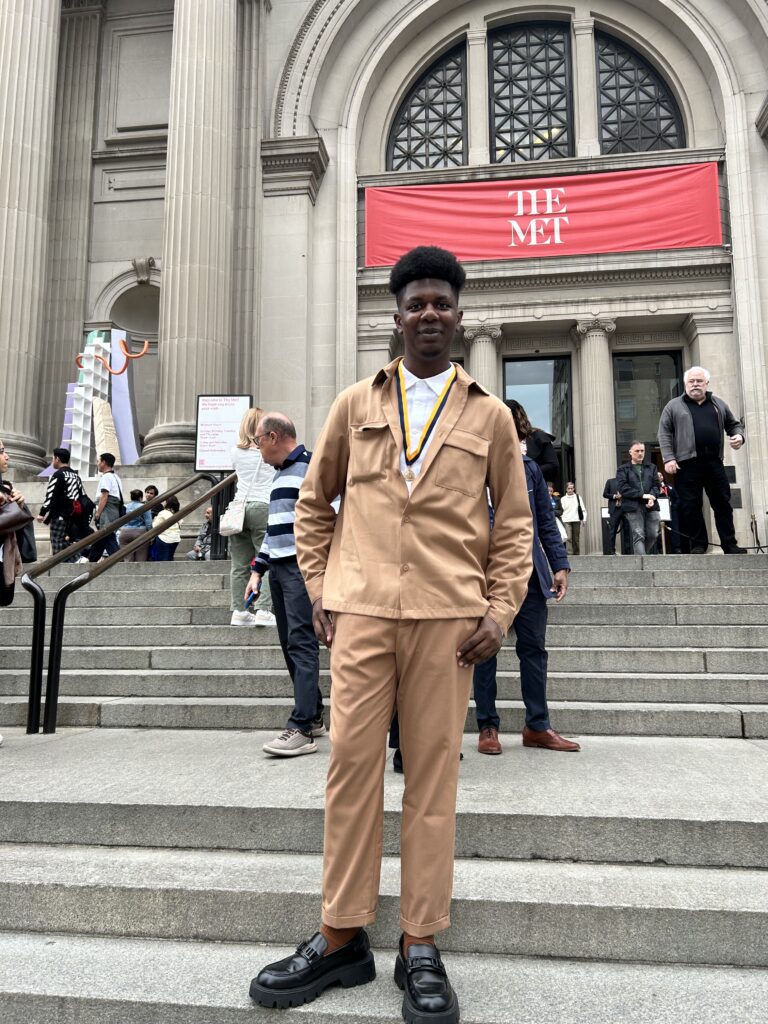Five Things to Know about the Salary Parity Deal for Early Childhood Educators
By Tanya Krien and Marie Mason, Vice Presidents of Early Childhood Education

Earlier this month, Mayor Bill de Blasio and Council Speaker Corey Johnson announced a plan to raise pay for early childhood teachers. The tentative deal ensures that certified teachers who work in community-based organizations (CBOs) will earn the same starting salary as their Department of Education colleagues who teach in public schools. The increases will happen incrementally, with full parity being achieved by 2021. Hundreds of NYC early childhood teachers could see their pay increase by as much as $20,000 under this deal. While we, like most professionals who work in the field of early childhood education, have been rejoicing the news and consider it long overdue, the deal is mired in details (as are most) and involves considerations that have not been widely covered. Below are five details about the agreement, explained from an early childhood educator point of view.
#1: The deal represents a long overdue shift in thinking.
The need for this deal was huge. Early childhood teachers who have bachelor’s and master’s degrees had been earning a starting salary in the $40K range — about $20K less than the starting salary for teachers in NYC public schools. That’s a huge discrepancy for professionals with similar backgrounds and education levels — and it was indicative of what the City thought early childhood educators (and early childhood education in general) was worth. For too long, people have thought of early childhood education as not much more than babysitting. But it’s been well-documented that expectations of what a child must learn in preschool have risen dramatically in the past few decades, and today’s early childhood teachers must do everything an elementary school teacher does, with the same level of education. It is fair and about time that they get equally compensated.
This is a real win for early childhood education in New York City. It will now be easier to retain teachers, which has been a real struggle. It will allow these teachers to earn a more livable wage. And it signals to the public that the early childhood years are among the most important, as they set the stage for a child’s future success in education (for a real-life illustration of this, see “Jessica’s Story”).
#2: The deal affects early childhood educators from only one union, Local 205. Members of Local 95 — which represents Head Start teachers — and non-unionized teachers are not covered by this deal.
The City of New York has two separate collective bargaining agreements when it comes to early childhood educators. One is with the union that negotiated this deal: Local 205, which represents the Day Care Council of New York, which represents early childhood educators in community-based child care EarlyLearn programs. The salary parity agreement is between the City of New York and Local 205 members only.
But the City also has a collective bargaining agreement with a different, separate union — Local 95 — whose members are teachers in community-based Head Start EarlyLearn programs. This Local is not a part of the agreement. If the City doesn’t follow suit and offer Local 95 teachers the same salary parity, that would mean that a teacher covered by the Local 205 agreement could see a $20K bump in salary, but a teacher doing the same job down the block at a Head Start (and who is represented by Local 95) will still receive the old salary. That would be a nightmare for Head Start centers, which would not be able to retain high-quality teachers. Who would choose to work at a Head Start center when they could make $20K more, for doing the same work with the same hours, at a non-Head Start early childhood program? The Mayor’s announcement said that the agreement will “serve as the model” for early childhood education providers who are not part of Local 205. We hope this means the City plans to make a similar deal with Local 95, but we haven’t heard anything definitive yet.
#3: Salaries for teacher aides, teacher assistants, and managers will need to be reevaluated.
In early childhood programs, teacher aides and assistants are instrumental in providing quality care. In fact, they require more education and training than their public school counterparts. Head Start teacher aides require 120 hours of coursework in early childhood education and, at a minimum, Child Development Associate (CDA) certification. Yet, due to funding constraints, Head Start aides and assistants typically earn minimum wage or slightly more. Under the agreement, aides (and other support staff) represented by Local 205 will receive a $1,800 ratification bonus and 2.75 percent raise in October 2021. It wasn’t clear from the statement if this puts them on par with aides and assistants in public school classrooms. Considering the qualifications required, these professionals deserve pay parity also.
At the other end of the spectrum are managers of early childhood education programs. If teachers’ salaries go up, we can’t expect managers’ salaries to stay stagnant. There is a union that represents administrators and supervisors — the Council of Supervisors and Administrators (CSA) — and the City has agreed to continue talks with representatives, but there is not yet a definitive timetable. However, not all program directors belong to this union; we have only one CSA union member at The Child Center. Would the City fund pay raises for non-union directors, too? Which brings us to #4.
#4: For Head Start centers, it isn’t clear where the money would be coming from.
Here’s another kicker when it comes to Head Start centers: Even if Local 95 secures a similar deal with the City, Head Starts are federally funded — and the federal government is not going to pony up the money for the increases. Head Start teachers are unequivocally due this well-earned raise, and we fervently hope that Local 95 will be able to secure it for its members. But the public needs to be aware that, absent city funding, the CBOs that offer direct federal funding for Early and Head Starts (like The Child Center) will have to come up with the money by cutting costs elsewhere — most likely by cutting already stretched-thin supplies and personnel — unless the City agrees to make up the difference.
As mentioned above, we also will have to find the money to raise the salaries of management (for example, Head Start center directors) who are not represented by a union at all. The city government should help fund this, too.
#5: The biggest winner of this agreement isn’t the teachers. It’s New York City.
Chalkbeat estimates that the full cost of the union deal is expected to reach $15 million, and to reach full pay parity would cost $83 million annually. Those are some eye-popping figures. Many New Yorkers might be questioning if we can afford this. But the answer is that we can’t afford not to. Study after study has shown that early childhood education is good for individual children, good for society at large, and is cost-effective to boot. It’s also the right thing to do by our early childhood educators, who invest so much of their time, skills, and heart in their work on behalf of our children and are not looking to make millions. They are simply seeking to earn a decent living.
This agreement is an investment in our future, and we will reap the rewards when today’s preschoolers start kindergarten ready to learn, begin their academic careers with positive feelings about school, and grow up to be happy, healthy, contributing adults.






